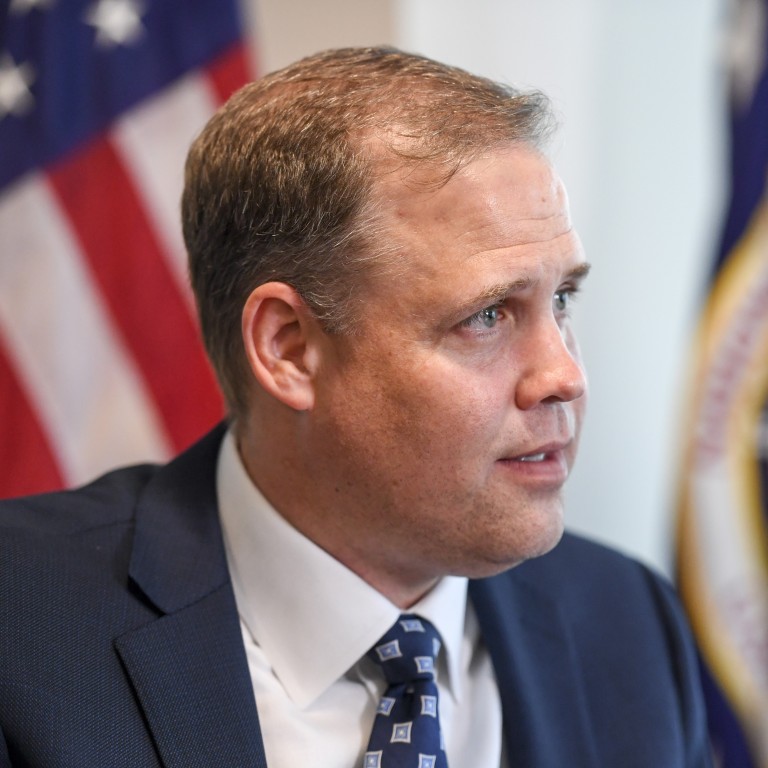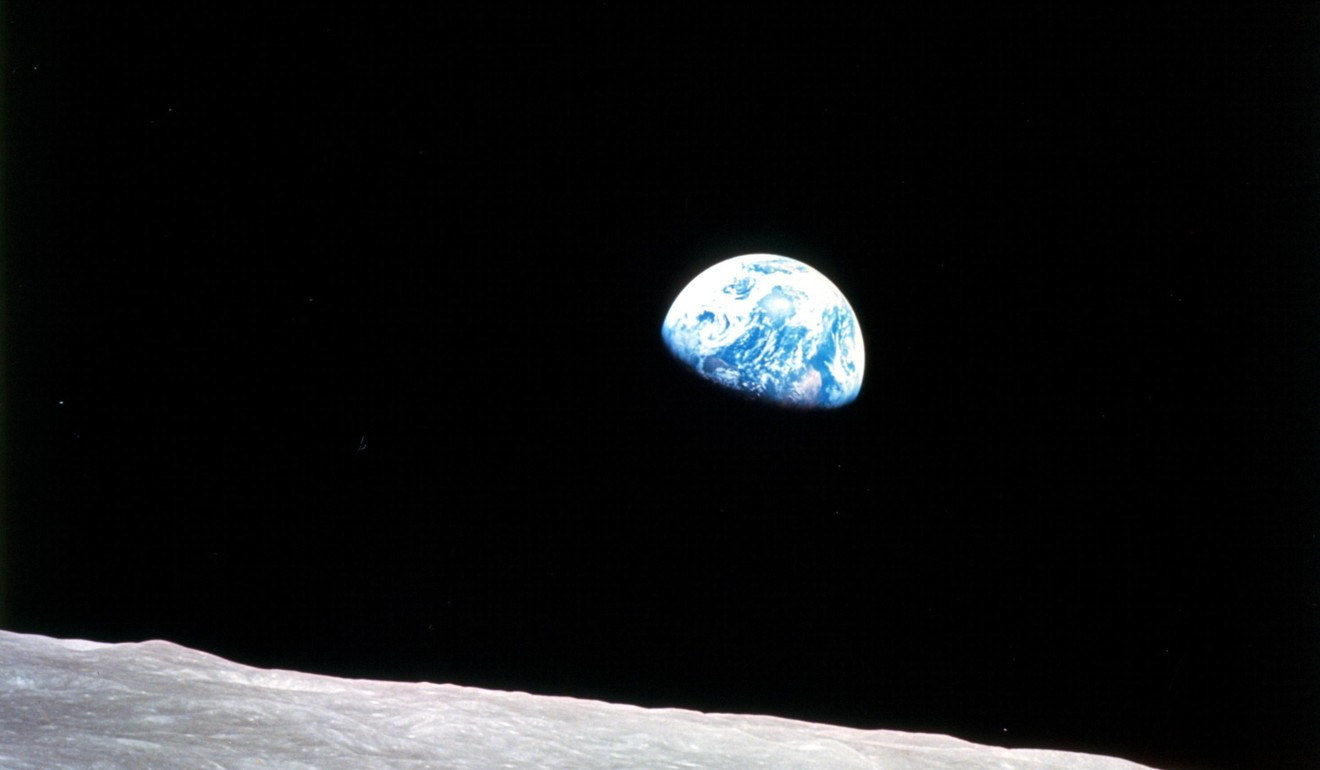
Nasa administrator rescinds invitation to Russian counterpart after backlash
- Nasa Administrator Jim Bridenstine said offer to Dmitry Rogozin, the head of Roscosmos, had angered some key senators
Facing mounting criticism from Capitol Hill, Nasa Administrator Jim Bridenstine has rescinded an invitation to the controversial head of the Russian space agency to visit the United States.
In an exclusive interview with The Washington Post, Bridenstine said that the invitation was an attempt to maintain relations with Dmitry Rogozin, the head of Roscosmos, the Russian space agency. But after the offer was blasted by some key senators, he said he decided to withdraw it.
“We had heard from numerous senators suggesting that this was not a good idea,” he said in a phone interview late Friday evening. “And I wanted to be accommodating to the interests of the senators, and so I have rescinded the invitation.”
Rogozin was placed on a sanction list by the Obama administration in 2014 response to Russia’s military actions in Ukraine when he was the deputy prime minister of the Russian Federation. After the sanctions were issued, he said Russia should stop flying Nasa’s astronauts to the International Space Station in retaliation. “After analysing the sanctions against our space industry, I suggest the US delivers its astronauts to the ISS [International Space Station] with a trampoline,” he wrote on Twitter.
Given Rogozin’s history as a bombastic Russian nationalist and presence on the sanction list, Senor Jeanne Shaheen, D-N.H., and others said Bridenstine should have never invited him.

“Administrator Bridenstine’s invitation to Dmitry Rogozin, one of the leading architects of the Kremlin’s campaign of aggression towards its neighbours, undercuts our message and undermines the United States’ core national security objectives,” Shaheen said in a statement earlier this week. “Rogozin has a proven record of choosing conflict over cooperation, and this invitation weakens the US’s global standing by demonstrating the ease by which Russian officials can get around transatlantic sanctions.”
Earlier Friday, a Nasa spokesman said that the visit, originally scheduled for February, would be postponed. But as the criticism mounted, the agency decided it was best to withdraw the invitation entirely.
While the United States and the Soviet Union had faced off in a cold war space race to the moon in the 1960s, they have since been key partners in space, working together on numerous projects, including the Apollo-Soyuz programme in 1975, when the two countries’ spacecraft docked in orbit.
Today, the countries are partners on the International Space Station. And Nasa has had to rely on Russia to fly its astronauts there ever since the space shuttle was retired in 2011.
In the interview, Bridenstine said he had gone through channels to have Rogozin exempted from the sanction list in order to visit the United States. It was an effort, he said, to “keep a strong working relationship that was kept separate from geopolitics and even partisan politics in the United States, and that’s been good for both countries.”
He added that he thought, “it’s good for the world to see that countries that disagree on a host of other things can collaborate on space activities.”
He said he did not consult with the White House on inviting Rogozin or then rescinding the invitation.
In October, Bridenstine visited the site in Kazakhstan where Russia launches astronauts to space. During the visit, a Russian Soyuz rocket carrying Nasa astronaut Nick Hague and Russia cosmonaut Alexey Ovchinin suffered a failure when one of the boosters failed to properly separate. The two were carried away to safety on a harrowing ride by the spacecraft’s abort system.
Bridenstine said that during the visit, Rogozin invited him to speak to university students in Moscow and that he then reciprocated by inviting his counterpart to the United States.
The pair bonded over their affinity for aviation: Bridenstine was a pilot in the Air National Guard. And leading up to the Soyuz launch, he tweeted after a meeting with Rogozin that they had “reaffirmed our commitment to cooperation on the @Space_Station and discussed the search for life, planetary defence and a sustainable presence on the moon.”
He added, “Poyekhali!” Russian for “Let’s go,” which was uttered by Soviet cosmonaut Yuri Gagarin, the first man in space, before he lifted off in 1961 and fuelled the space race with the United States.

